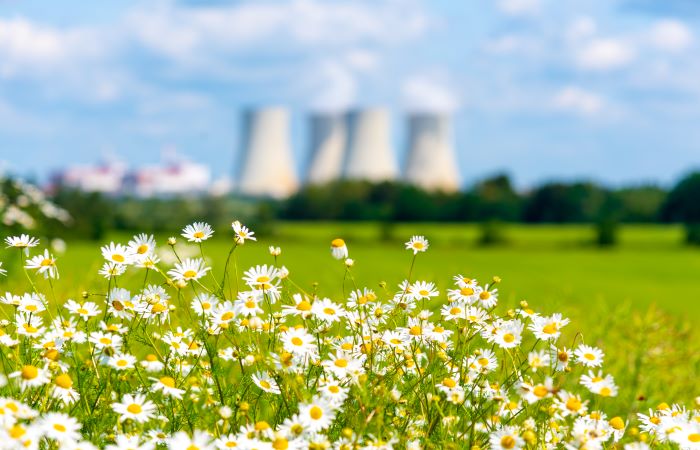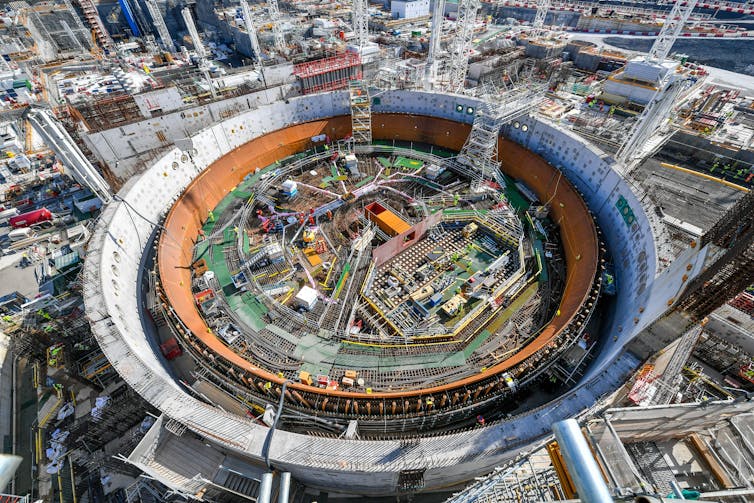OU News
News from The Open University
- Home
- How nuclear energy can help make all UK electricity green by 2035
How nuclear energy can help make all UK electricity green by 2035
Posted on • Science, Science, maths, computing and technology

Written by William Nuttall, Professor of Energy at The Open University.
Boris Johnson is set to announce at the Conservative Party conference in Manchester that all of Britain’s electricity will come from renewable sources by 2035, according to a recent report in the Times.The government suspects that the British public – tired of petrol station queues and dreading winter gas bills – will like the idea of moving away from fossil fuels. But the nature of this energy crisis, stoked by a late summer lull in wind power generation, high wholesale gas prices and Britain’s meagre prospects for storing energy, demands a careful response.And what energy technology offers low-carbon credentials and a reliable base supply? The UK government’s emphatic answer appears to be nuclear power.Only three years ago, UK ambitions for new nuclear power plants were in trouble. Major Japanese conglomerates Toshiba and Hitachi had pulled the plug on their separate nuclear projects in the country. But with renewed support from Boris Johnson’s government, one of these now appears to be back on the table.
The nuclear option
The reactors in nuclear power stations convert the heat generated by splitting atoms (a process known as nuclear fission) to electricity, and can usually run at maximum power for months, whatever the weather. This process doesn’t emit greenhouse gases – although there are likely to be emissions during the construction of the plant itself. The vapour that rises from the iconic cooling towers of a nuclear power plant is water, not carbon dioxide.

The nuclear reactor on unit one at Hinkley Point C. Ben Birchall/PA Images/Alamy Stock Photo
Hinkley Point C is underpinned by a finance deal with China, struck by former Chancellor of the Exchequer George Osborne. The days when, in 2015, Osborne said “Britain should run towards China” are fading. So too is the rhetoric of a nuclear renaissance that coincided with a post-cold war optimism for globalisation and market liberalisation. First it became clear that competitive electricity markets struggled with the challenge of replacing old nuclear with new. Then globalisation faltered with the return of great power nationalism.
Nuclear technology is back in the government’s sights, but this time it will involve more British money and technology. Talk of a green future has been joined with voices on the right clamouring for a new sense of national self-reliance, free from the vicissitudes of global fossil-fuel supply. Despite such realities, and the many difficulties encountered along the way, the UK nuclear renaissance remains internationalist in outlook. It is a strength that should be defended.